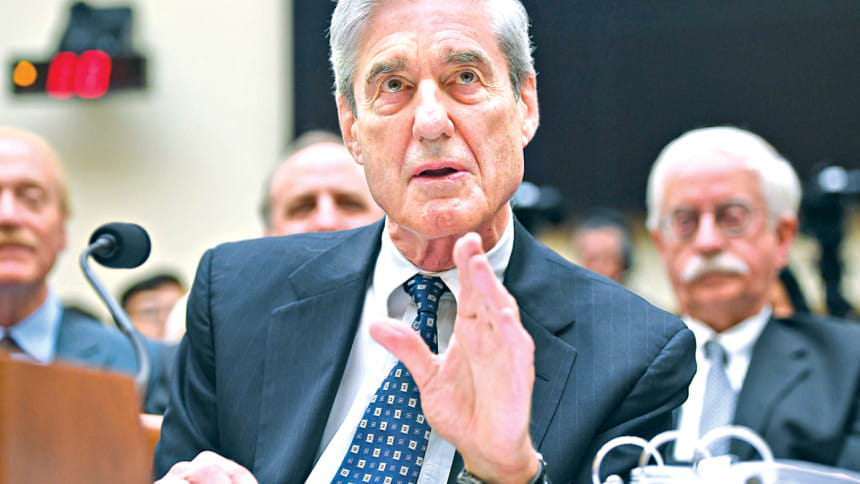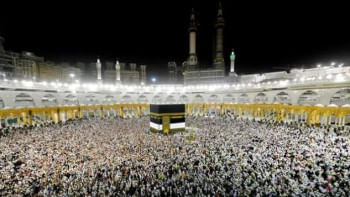‘No,’ Trump wasn’t exonerated

Robert Mueller yesterday said he did not exonerate Donald Trump in his two-year Russian meddling investigation but also told lawmakers he will not say if the president committed a crime, as he launched into a marathon day of congressional testimony.
Three months after releasing the final report on his probe into the 2016 election, much of the American public remains unclear about the former special counsel's findings on whether Trump criminally obstructed justice and whether his campaign colluded with Russians.
With Trump declaring he was "exonerated" in the probe and Democrats saying the report supplied ample evidence for impeachment, the notoriously taciturn Mueller answered questions for the first time in front of two separate, Democrat-run committees in the House of Representatives.
"Based on Justice Department policy and principles of fairness, we decided we would not make a determination as to whether the president committed a crime. That was our decision then and it remains our decision today," Mueller said in his opening remarks.
But when asked at the start of the hearing before the House Judiciary Committee if his report completely cleared the president of wrongdoing, Mueller said "no."
"The president was not exculpated for the acts he allegedly committed," Mueller said, adding that it was "true" that Trump could be prosecuted for obstruction of justice after he leaves office.
Trump insisted this week he would not watch the nationally-televised testimony but half an hour before it was to start, he let loose with an angry Twitter tirade, complaining among other things about the fact Mueller will testify with a top aide sitting next to him.
"This was specifically NOT agreed to, and I would NEVER have agreed to it. The Greatest Witch Hunt in U.S. history, by far!" Trump wrote in one of a half dozen tweets.
Mueller's report documents extensive contacts between the Trump campaign and Russians, including attempts to cooperate or collude, neither of which is a specific crime.
Mueller ruled in the end that there was not enough evidence to recommend charges of criminal conspiracy, the main legal charge he could make use of. The former FBI director also laid out in detail 10 instances when Trump allegedly tried to obstruct the investigation.
But he said he was prevented from recommending charges against Trump because Justice Department rules prohibited him from lodging criminal charges against a sitting president. He reiterated that position yesterday.

 For all latest news, follow The Daily Star's Google News channel.
For all latest news, follow The Daily Star's Google News channel. 



Comments